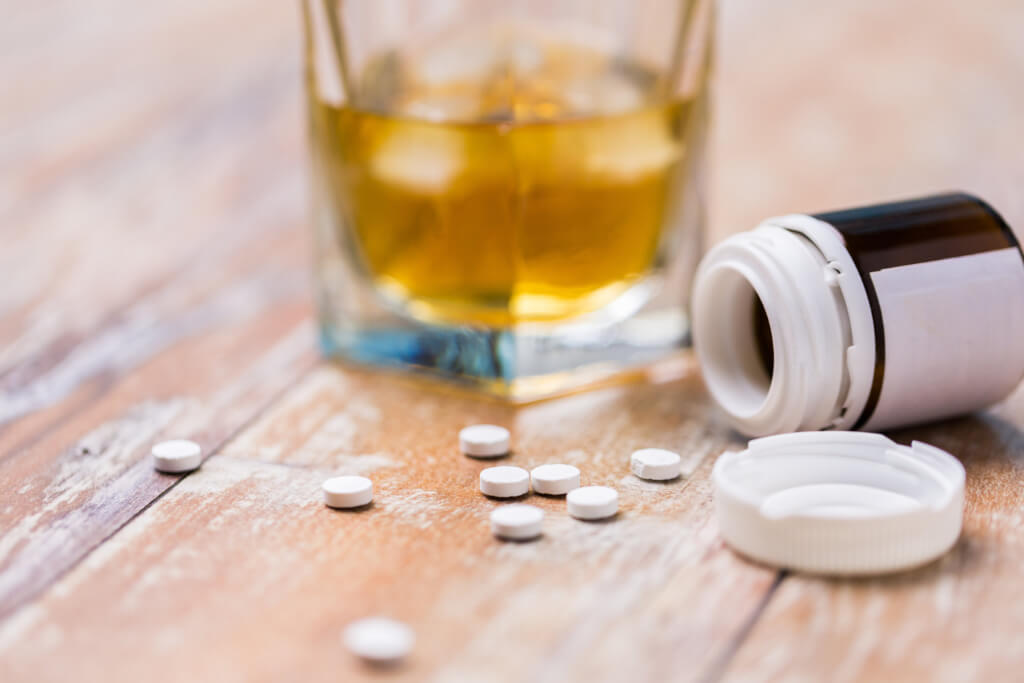Epilepsy is a common neurological disorder affecting approximately 5 million people in the United States. For most people with epilepsy, the condition is life-long and has to be managed with medications, like gabapentin. If you have been diagnosed with epilepsy and are being treated with gabapentin, you may wonder if it’s safe to keep drinking alcohol. However, mixing gabapentin and alcohol is a dangerous combination.
For individuals struggling with acute alcohol dependency, gabapentin may be prescribed as a second line of medication treatment. However, there is a risk that co-occurring addictions — especially to opiates — may lead to misuse. Gabapentin exacerbates the effects of alcohol. This is why it especially important to be aware of the dangers of mixing gabapentin and alcohol.
What is Gabapentin
Gabapentin (brand names: Neurontin and Gralise) is an anticonvulsant medication that is used primarily in the treatment of epilepsy. Gabapentin works by slowing down activity in the brain and calming down nerve activity. It can also affect how nerves respond to pain stimuli. In recent studies, gabapentin has also be effective in treating insomnia, dysphasia, and cravings for alcohol.
What is Gabapentin Used For
Gabapentin is a medication that is generally prescribed by doctors to treat epilepsy. It is also used to treat nerve pain from shingles, diabetic neuropathy, and restless leg syndrome. More recently, gabapentin has been used “off label” in the treatment of alcohol use disorder.
Alcohol abuse disorder affects some 15 million Americans. Heavy use leads to physical dependency and abrupt withdrawal can cause serious side-effects, like seizures, DTs, and hallucinations. In the treatment of alcohol use disorder, gabapentin works control withdrawal symptoms, such as anxiety and insomnia.
Can you Drink Alcohol While Taking Gabapentin?
The short is no. In fact, while taking gabapentin, you should avoid any substance that can exacerbate potential side effects — especially alcohol, drugs, or other depressants. Alcohol is a depressant that affects your central nervous system, and can make you dizzy, sleepy, and impact your coordination. The dangers of mixing gabapentin and alcohol are especially risky as alcohol enhances gabapentin’s side effects, which include:
- Dizziness
- Sleepiness
- Fatigue
- Impaired coordination
- Worsening depression
- Changes in mood or behavior
- Nausea and vomiting
- Diarrhea
The Dangers of Mixing Gabapentin and Alcohol
Gabapentin has several notable side effects that, by themselves, can be manageable. These side effects include:
Suicidal thoughts — Gabapentin has been shown to increase the risk of developing or worsening suicidal thoughts and behaviors.
Respiratory depression — For people with pre-existing cardiovascular issues, like COPD, gabapentin can suppress breathing.
Withdrawal symptoms — When gabapentin is stopped abruptly withdrawal effects, such as agitation, anxiety, nausea, vomiting, and diarrhea may happen.
Alcohol is a depressant that affects your central nervous system. The effects on the central nervous system can impact your thinking, memories, speech and coordination. In addition to how alcohol impacts your central nervous system, it can also have harmful effects on your immune system, digestive system, and circulatory system.
Alcohol by itself can be dangerous — especially if it is used frequently or heavily. While gabapentin is relatively safe, if it used as prescribed and under a doctor’s supervision, it can be dangerous to mix gabapentin and alcohol.
What Happens When You Mix Gabapentin and Alcohol
Gabapentin and alcohol are both depressants and mixing the two enhances the effects of each substance. The dangers of mixing gabapentin and alcohol are:
Decreased brain activity — Alcohol and gabapentin both work on the central nervous system and cause drowsiness and sleepiness. Additionally, there is an increased risk of seizures when you combine alcohol and gabapentin — especially if you are withdrawing from them.
Increased respiratory depression — Respiratory depression occurs when your body is not getting the oxygen it needs. This happens as a result of slowed breathing. Both alcohol and gabapentin reduce respiration rates. Combining them together can cause your breathing to slow to dangerous rates and even stop it altogether.
Increased drowsiness and dizziness — Gabapentin’s side effects include drowsiness and dizziness; the same as alcohol. Mixing the two can lead to dangerous results, including injury, impaired motor function, and a lack of coordination.
Addiction Treatment in California
If you have been prescribed gabapentin to treat epilepsy, nerve pain, or as part of your medication assisted treatment for alcohol abuse disorder, you should avoid drinking alcohol. The dangers of missing gabapentin and alcohol are severe and can be life-threatening. Instead work with your health care provider to manage your symptoms.
If you or someone you love is struggling with alcohol use disorder, MD Detox can help. Our treatment specialists will work with you to develop a treatment plan for your individual needs — that can be administered in the safety and comfort of your home. For more information about your options, please contact us today. We’re here, ready to help get you on the road to recovery.

